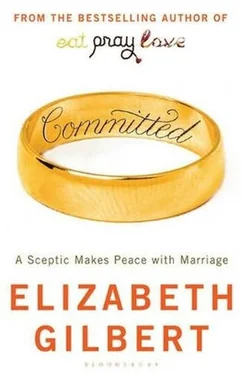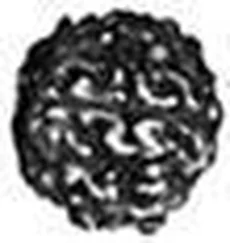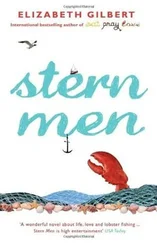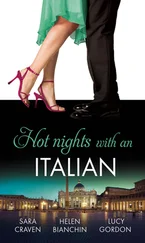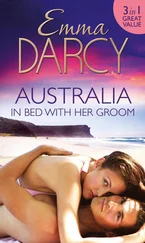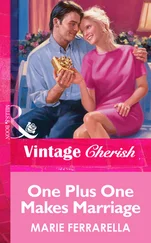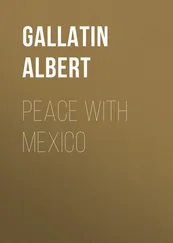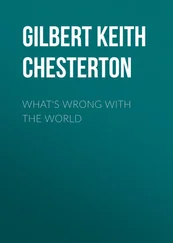
Elizabeth Gilbert
Committed: A Skeptic Makes Peace With Marriage
Copyright (c) Elizabeth Gilbert, 2010
There is no greater risk than matrimony. But there is nothing happier than a happy marriage.
BENJAMIN DISRAELI, 1870, IN A LETTER TO QUEEN VICTORIA’S DAUGHTER LOUISE, CONGRATULATING HER ON HER ENGAGEMENT
A few years ago, I wrote a book called Eat, Pray, Love, which told the story of a journey I had taken around the world, alone, after a bad divorce. I was in my midthirties when I wrote that book, and everything about it represented a huge departure for me as a writer. Before Eat, Pray, Love, I had been known in literary circles (if I was known at all) as a woman who wrote predominantly for, and about, men. I’d been working for years as a journalist for such male-focused magazines as GQ and Spin, and I had used those pages to explore masculinity from every possible angle. Similarly, the subjects of my first three books (both fiction and nonfiction) were all supermacho characters: cowboys, lobster fishermen, hunters, truckers, Teamsters, woodsmen…
Back then, I was often told that I wrote like a man. Now, I’m not entirely sure what writing “like a man” even means, but I do believe it is generally intended as a compliment. I certainly took it as a compliment at the time. For one GQ article, I even went so far as to impersonate a man for a week. I cropped my hair, flattened my breasts, stuffed a birdseed-filled condom down my pants, and affixed a soul patch beneath my lower lip-all in an effort to somehow inhabit and comprehend the alluring mysteries of manhood.
I should add here that my fixation with men also extended into my private life. Often this brought complications.
No-always this brought complications.
Between my romantic entanglements and my professional obsessions, I was so absorbed by the subject of maleness that I never spent any time whatsoever contemplating the subject of femaleness. I certainly never spent any time contemplating my own femaleness. For that reason, as well as a general indifference toward my own well-being, I never became very familiar to myself. So when a massive wave of depression finally struck me down around the age of thirty, I had no way of understanding or articulating what was happening to me. My body fell apart first, then my marriage, and then-for a terrible and frightening interval-my mind. Masculine flint offered no solace in this situation; the only way out of the emotional tangle was to feel my way through it. Divorced, heartbroken, and lonely, I left everything behind and took off for a year of travel and introspection, intent on scrutinizing myself as closely as I’d once studied the elusive American cowboy.
Then, because I am a writer, I wrote a book about it.
Then, because life is really strange sometimes, that book became a megajumbo international best seller, and I suddenly found myself-after a decade spent writing exclusively about men and maleness-being referred to as a chick-lit author. Again, I’m not entirely sure what “chick-lit” even means, but I’m pretty certain it’s never intended as a compliment.
In any case, people ask me all the time now whether I saw any of this coming. They want to know if, as I was writing Eat, Pray, Love, I had somehow anticipated how big it would become. No. There was no way in the world I could possibly have predicted or planned for such an overwhelming response. If anything, I’d been hoping as I wrote the book that I’d be forgiven for writing a memoir at all. I had only a handful of readers, it was true, but they were loyal readers, and they had always liked the stalwart young lady who wrote tough-minded stories about manly men doing manly things. I did not anticipate that those readers would enjoy a rather emotional first-person chronicle about a divorced woman’s quest for psychospiritual healing. I hoped they would be generous enough, though, to understand that I had needed to write that book for my own personal reasons, and maybe everyone would let it slide, and then we could all move on.
That was not how things turned out.
(And just to be clear: The book that you are now holding is not a tough-minded story about manly men doing manly things either. Never let it be said that you were not warned!)
Another question people ask me all the time these days is how Eat, Pray, Love has changed my life. That one is difficult to answer because the scope has been so massive. A useful analogy from my childhood: When I was little, my parents once took me to the American Museum of Natural History in New York City. We stood there together in the Hall of Oceans. My dad pointed up toward the ceiling at the life-sized model of the great blue whale that hung suspended over our heads. He tried to impress upon me the size of this gargantuan creature, but I could not see the whale. I was standing right underneath the whale, mind you, and I was staring directly up at the whale, but I could not absorb the whale. My mind had no mechanism for comprehending something so large. All I could see was the blue ceiling and the wonderment on everyone else’s faces (obviously something exciting was happening here!), but I could not grasp the whale itself.
That’s how I feel sometimes about Eat, Pray, Love. There came a point in that book’s trajectory when I could no longer sanely absorb its dimensions, so I gave up trying and turned my attention to other pursuits. Planting a garden helped; there’s nothing like picking slugs off your tomato plants to keep things in perspective.
That said, it has been a bit of a perplexity for me to figure out how, after that phenomenon, I would ever write unself-consciously again. Not to act all falsely nostalgic for literary obscurity, but in the past I had always written my books in the belief that very few people would read them. For the most part, of course, that knowledge had always been depressing. In one critical way, though, it was comforting: If I humiliated myself too atrociously, at least there wouldn’t be many witnesses. Either way, the question was now academic: I suddenly had millions of readers awaiting my next project. How in the world does one go about writing a book that will satisfy millions? I didn’t want to blatantly pander, but I also didn’t want to dismiss out of hand all those bright, passionate, and predominantly female readers-not after everything we’d been through together.
Uncertain of how to proceed, I proceeded anyhow. Over the course of a year, I wrote an entire first draft of this very book-five hundred pages-but I realized immediately upon completion that it was somehow wrong. The voice didn’t sound like me. The voice didn’t sound like anybody. The voice sounded like something coming through a megaphone, mistranslated. I put that manuscript away, never to be looked at again, and headed back out to the garden for some more contemplative digging, poking, and pondering.
I want to make it clear here that this was not exactly a crisis, that period when I could not figure out how to write-or, at least, when I could not figure out how to write naturally. Life was really nice otherwise, and I was grateful enough for personal contentment and professional success that I wasn’t about to manufacture a calamity from this particular puzzle. But it certainly was a puzzle. I even started wondering if maybe I was finished as a writer. Not being a writer anymore didn’t seem like the worst fate in the world, if indeed that was to be my fate, but I honestly couldn’t tell yet. I had to spend a lot more hours in the tomato patch, is all I’m saying, before I could sort this thing out.
Читать дальше
